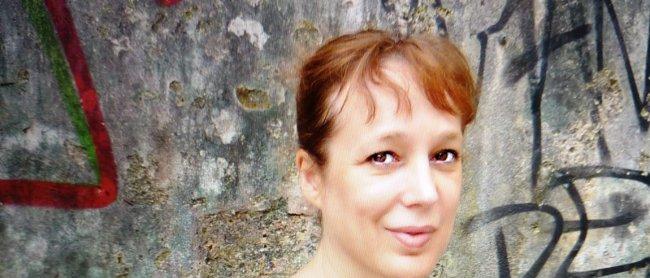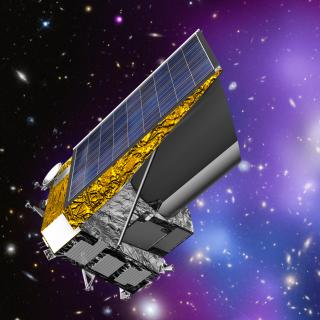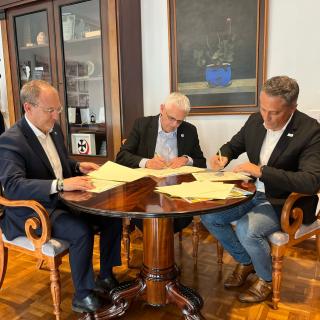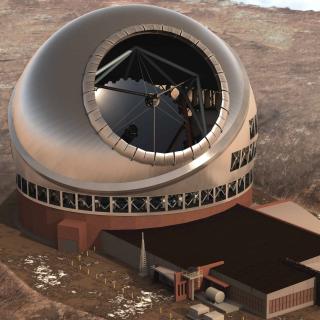The Instituto de Astrofísica de Canarias (IAC) project, “En un lugar del Universo…”, which invites well-known figures of the Spanish literary scene to visit the Canary Islands Observatories, continues in 2017 with the participation of the writer and journalist Ángela Vallvey next week. So far, the writers Elsa López, Juan Cruz, Rosa Montero, Antonio Tabares and Juan Madrid have participated in it.
On Monday, 3rd April, the writer will arrive to the IAC Headquarters in La Laguna, where she will have interviews with scientific and technological staff and, as well as visiting the Instrumentation division. In the afternoon, she will visit the Teide Observatory will, in Izaña (Tenerife). The following day, Tuesday 4, she will travel to the Roque de los Muchachos Observatory in Garafía (La Palma). In both observatories she will have the opportunity to know the installations, results and projects of the different scientific institutions. In addition, she will attend an astronomical observation workshop. Finally, on Thursday 6th, she will return to Tenerife to visit the Museum of Science and Cosmos, of Museums of Tenerife, where she will share her impressions and experiences in a meeting with the media.
Ángela Vallvey is the sixth of a series of writers that are visiting the Canary Islands Observatories since 2016, year of the IV centenary of the death of Miguel de Cervantes, so that they can receive the inspiration of the cosmos and commit their vision of astronomy to a book of short stories whose aim is to help a solidarity project related to Alzheimer’s disease.
As well as the participation of the IAC, the project “En un lugar del Universo…” is being supported by the international scientific institutions present in the Canary Island Observatories and by the Museum of Science and the Cosmos, of Museums of Tenerife, as well as receiving support from the Instituto Cervantes, and funding from the Severo Ochoa programme.
Ángela Vallvey, born in San Lorenzo de Calatrava (Ciudad Real) has a degree in History, and studied Philosophy and Anthropology but soon took up writing as a career. She has been awarded a number of prizes, both for her novels and for her poetry. For the latter, she won the Jaén Poetry Prize in 1998 with "El tamaño del universo" a group of poems related to scientific curiosity and the paradoxes of the world and of the universe, she won the Ateneo of Seville Poetry Prize 2006 for "Nacida en cautividad" and the Barcarola Poetry Prize in 2016 for "Epidemia de fuego".
She is the author or the novels “A la caza del último hombre salvaje"(1999), "Vías de extinción" (2000), "Los estados carenciales" (2002), for which she won the Nadal Prize, a collection of short stories "No lo llames amor" (2003), "La ciudad del diablo" (2005), "Todas las muñecas son carnívoras" (2006), "Muerte entre poetas" (2008) for which she was placed second for the Planeta Prize; "El hombre del corazón negro" (2011), and "Mientras los demás bailan" (2014). Her work has been translated into over twenty languages and published by important publishers. Her more recent works are " El arte de amar la vida" (2015) and the popularizing essay "Amantes ponderosas de la historia" (2016). In 2017 she has published the novel "Tarta de almendras con amor" (Suma de Letras) which shows her worries about notable current problems such as dietary equilibrium, bullying in schools, and rare diseases.
She also collaborates with different media and regularly writes articles in the press, work that has been recognized with the Julio Camba Prize for Journalism.
Related previous press releases:
- Well known Spanish literary personalities visit the Canary Island Observatories
- The writer Elsa Lopez learns first hand the multidisciplinary work done at the IAC
- The writer Elsa Lopez visits the Roque de los Muchachos Observatory within the framework of the project "En un lugar del Universo..."
- Rosa Montero will visit the IAC and the Canary Observatories
- Antonio Tabares visits the IAC and the Canary Island Observatories
- ROSA MONTERO: "Looking up at the sky makes us more human, more civilized, less mean"
- Juan Cruz visits the IAC and the Canary Island Observatories
- JUAN CRUZ: “The Canaries has to make a claim for itself as a place for science and technology"
- ANTONIO TABARES: “Ciencia y literatura tienen más en común de lo que a priori parece”
- ANTONIO TABARES: “Science and literature have more in common than you might think”
- ELSA LÓPEZ. “It’s curious that the more I learn here, the more I realize just how much is left to know”
- Juan Madrid visits the IAC and the Canary Observatories
- JUAN MADRID: “From the Canaries we can look at heaven and earth at the same time”



